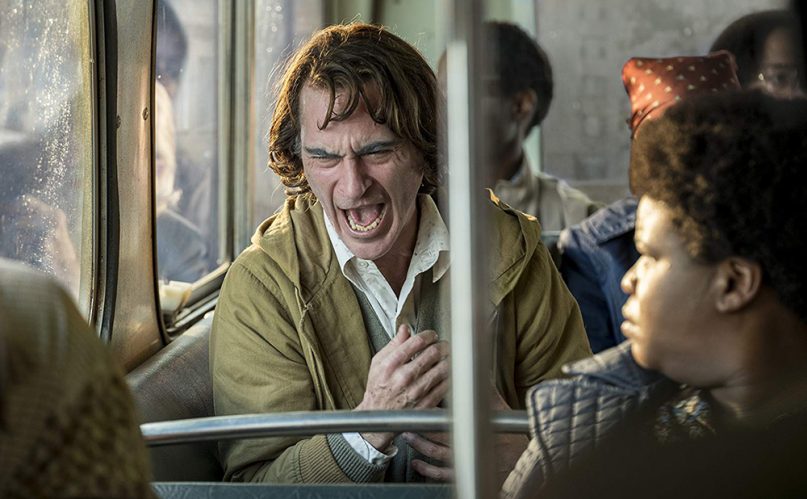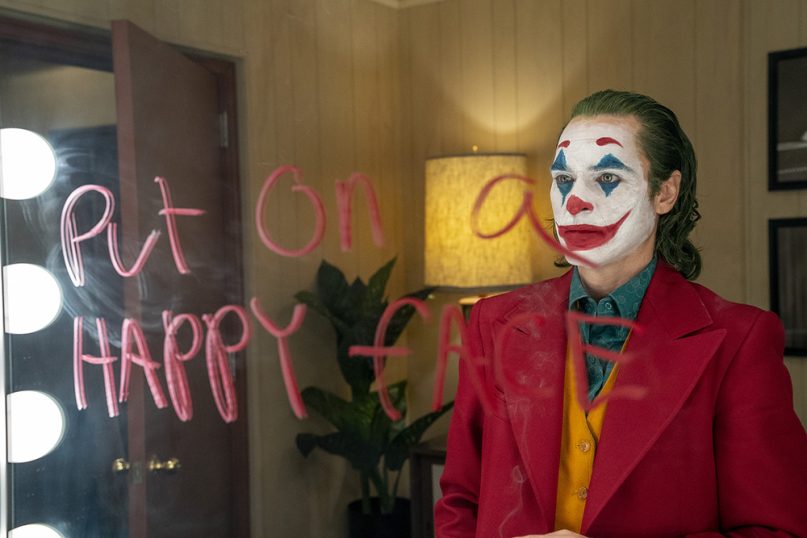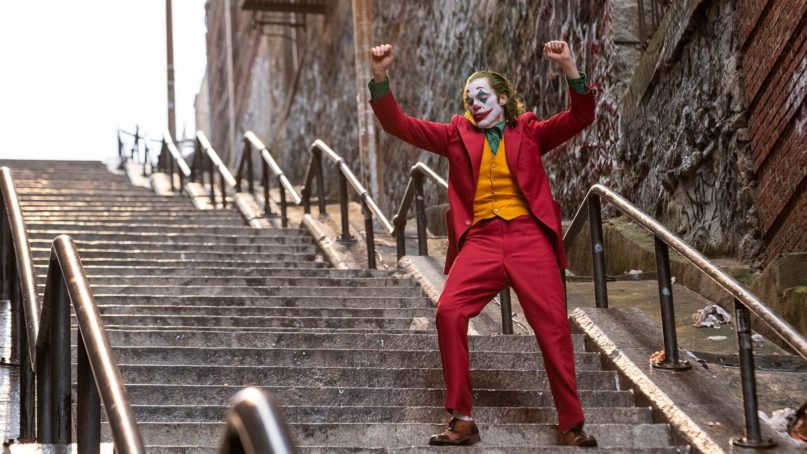(RNS) — Whether you’re a comic books-to-screen movie fan or not, you’ve probably run across the rampant discussion of “Joker,” the last film in the Batman franchise. The movie itself is a Scorcese-style pastiche directed by Todd Phillips that reenvisions Batman’s most famous antagonist as Arthur Fleck, a sad-sack failed comedian who has been driven, by a combination of mental illness, societal alienation and sheer nihilism, to absurd violence.
To many of its progressive critics, “Joker” is a glorification of the plight of self-pitying white men, and those lonelyhearts known as “incels” in particular. Or maybe, if you read economist Tyler Cowen’s blog, Marginal Revolution, the film is a thorough condemnation of populist movements like antifa: One of Fleck’s early acts of violent self-defense inadvertently launches a wider and even more chaotic movement of resentment-fueled clowns, keen to bring down Gotham’s unjust elite.
But at its core, “Joker” is less about any specific 2019 political phenomena — be it incels or Occupy — than it is about nihilism itself: What does it mean to live in a world without any meaning at all?
Fleck — played with uncanny innocence by Joaquin Phoenix — is no internet-radicalized glory-seeker. He is not even an eroticized agent of chaos, as Heath Ledger played Joker in Christopher Nolan’s 2008 contribution to the Batman canon, “The Dark Knight.” Instead, Fleck’s a Holy Fool: His trembling lips and wide-eyed stare belie not resentment but sheer confusion. It’s not just that he is mentally ill: Marred by what the Christian tradition calls sin, the world makes no sense. His seeming “madness” is imposed upon him, from without, by a world in which violence and power hierarchies are the only moral or natural laws.

Actor Joaquin Phoenix portrays Arthur Fleck/Joker in the new film “Joker.” Photo by Niko Tavernise/Warner Bros.
Phillips’ homage-filled “Joker” feels inauthentic, its constant references, not only to Scorsese’s “Taxi Driver” and “The King of Comedy” but to other films in the Batman cycle, only intensifying the sense of surreality that Fleck faces. The world we’re living in is profoundly (or, rather, profanely) unreal. It is, implicitly, a godless world.
Phillips doesn’t glorify Fleck. Only Fleck’s final rampage, a murderous televised conversation with his talk-show-host idol, played by Robert De Niro, starts to feel a little self-indulgent, courting too strongly whatever is the reactionary equivalent of YAS QUEEN!!!.
The charge of glorification is far better leveled against Ledger’s freewheeling incarnation — though, to be fair, Ledger’s chaotic energy was the only thing capable of livening up Bale’s oppressively ponderous Batman. What Phillips’ film does is humanize the Joker. His violence may not be a forgivable consequence of his circumstances, or the brokenness of the world around him, but his sheer bewilderment is. When nothing makes sense, one might just as easily be a prince as a clown.
That the Joker’s humanity is never in doubt is the movie’s greatest strength. Phillips and Phoenix alike imbue the character with such fundamental dignity, even in his abasement, that we never forget that we are called to love him, not laugh at him.
If there is a moral criticism to be made of “Joker,” it is that the film almost never challenges its unrelenting claim of the necessity for nihilism. It explores, wrenchingly and almost overwhelmingly, what contemporary nihilism is, but never once asks the question if it’s all there is. It’s a bleakly descriptive film, but never a proscriptive one. With the exception of a shared smile with a child early in the film, we never see Fleck positively connect with anyone.
In that, for all its visual envelope-pushing and psychic gore, “Joker” feels oddly safe. It encourages us to feel sympathy for the Joker from afar, from the safety of our reclining seats. It never shows us how we might love those afflicted in our own world. Hard to watch, as it may be, that’s one challenge the film doesn’t dare undertake. In Phillips’ telling, at least, the kingdom of heaven will never come to Gotham’s streets.

Actor Joaquin Phoenix portrays Arthur Fleck/Joker in the new film “Joker.” Photo by Niko Tavernise/Warner Bros.






